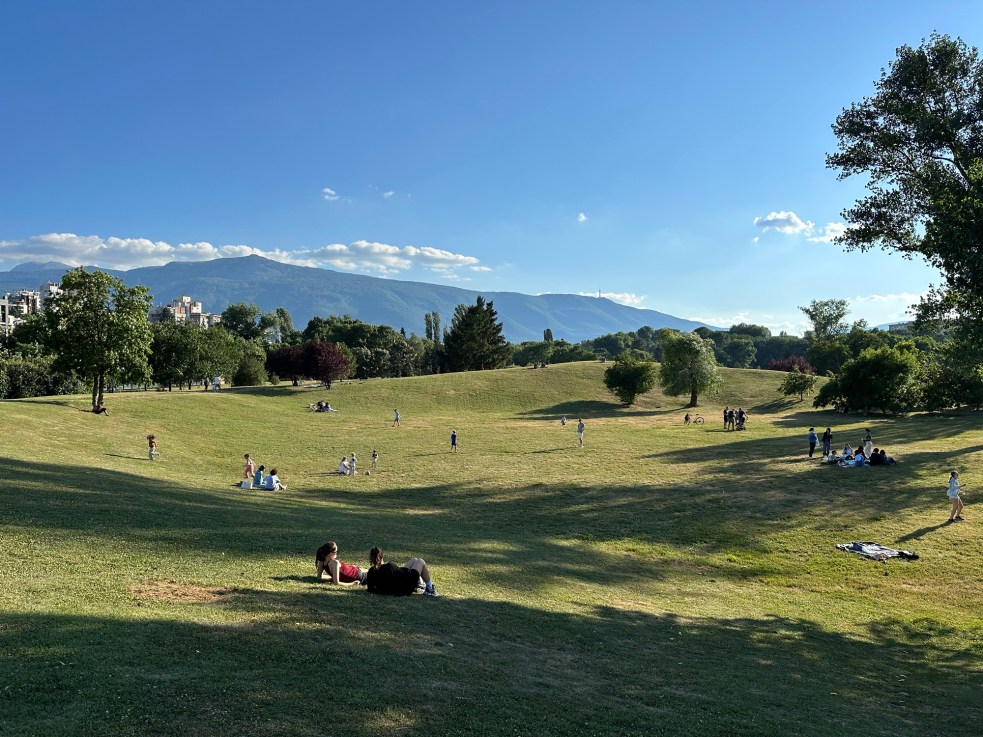When we see and hear – that is, when we acquire spiritual vision – a seed is planted in the earth of our heart. This is why see and hear, with the addition of the phonetic pair d-t, give seed and heart. We need our eyes and ears to be opened.
Seed is also the past tense of see – or it would be, if see was a regular verb. And the past tense of hear would be heart.
This is because the past tense in English, which is written -ed, is pronounced d or t, depending on whether the previous sound is voiced or not. If the previous sound is voiced, for example b, then the pronunciation of -ed is d (mobbed); if, however, the previous sound is voiceless, for example p, then the pronunciation of -ed is t (stopped). It is only if the previous sound is d or t that the sounds have to be separated by a vowel sound and the pronunciation is id (decided).
An inordinate amount of importance is placed on the ability to see and hear in the Gospels. Christ is always crying out, “Let anyone with ears to hear listen!” (Mt 11:15, Mk 4:9). In Matthew 13:16, he tells the disciples, “Blessed are your eyes, for they see, and your ears, for they hear.” He is referring to spiritual vision, which unfortunately is not the kind of vision that is usually taught in schools, because in schools children are taught to label and count, to analyze, to think, to rely on reason, on effort (“work hard, and you’ll get good marks”), and this creates a certain distance between us and the things that surround us, leading to the idea that we can do something with them, such as deal, trade, buy and sell because they are somehow alien to us, external (we adopt the same attitude towards language).
It also encourages the idea that in order to achieve something in this life we must act (do something to something or someone else). If you teach a child to count up from 1 (never from 0), you are encouraging them to think in terms of profit and loss, quantity, what comes in and what goes out, you are encouraging them to trade in the things of this world, which is the whole basis of the dominant system, capitalism (counting up). You are not encouraging them to truly see the things of this world for what they are worth and to rejoice in them. This comes to us naturally, but in the hurly-burly of classrooms it is often extracted. A good example would be a friend of mine’s ability to draw. Before he attended school, he drew beautifully (several of his drawings were published in National Geographic Kids). Once he started attending school and went to art lessons, where he was taught the names of artists and encouraged to remember them, his drawing became analytical, predictable, uninspired. He had lost that innocency of vision that Christ wants us to reclaim because he began to analyze, to do the exercises that he was set, to put everything in boxes, to learn not in order to appreciate, but to pass exams (to achieve a certain mark).
This idea of effort being rewarded is very dangerous, because it leads to the notion that we must always be doing something, and that implies doing something to something, not just letting it be. I have a neighbour who is always cutting down trees and bushes. This morning, another bush had disappeared. I noticed its absence. He obviously feels the need to be busy, but I can’t quite understand why he doesn’t leave them alone. After all, trees provide food, warmth, oxygen, shade, and homes (somewhere to hide) for the sparrows and great tits that populate the local area.
And what do we see with? Our eyes (addition of y). What do we use to hear? The ear (addition of h). So, we have: eyes-see-seed and ear-hear-heart, with the addition of the phonetic pair d-t in the final word of each triplet. This is because in order for the spiritual seed to take root in the earth of our heart, and to effect a change, we must be able to see/hear the message. Otherwise, the words will fall on deaf ears. This is the message of the Parable of the Sower that precedes the passage in Matthew I quoted earlier.
In the first of the Parables of the Kingdom that follow this passage, the Parable of the Tares, there is one who sows good seed in the field of the world – Christ himself – and the enemy (the devil) who comes at night to sow weeds among the wheat. “The good seed are the children of the kingdom; the weeds are the children of the evil one” (Mt 13:38). Weed and wheat are, of course, connected (phonetic pair d-t, addition of h). They are planted in the same field until the time of the harvest, when an angel will come to glean – language here is predicting the future, it is telling us what will happen, just as, in the case of creation, it tells us how the world came into being.
And isn’t it interesting that, of the two, weed and wheat, it is only the second that has ears? It is also, ironically, only the second that leads to true wealth (addition of l) – which is not having more of something, but seeing the wonder in people and things, without the need to possess or exploit them.
Jonathan Dunne
Heart of Language 6/15
Next: Heart of Language 7/15
Back to: Contents






